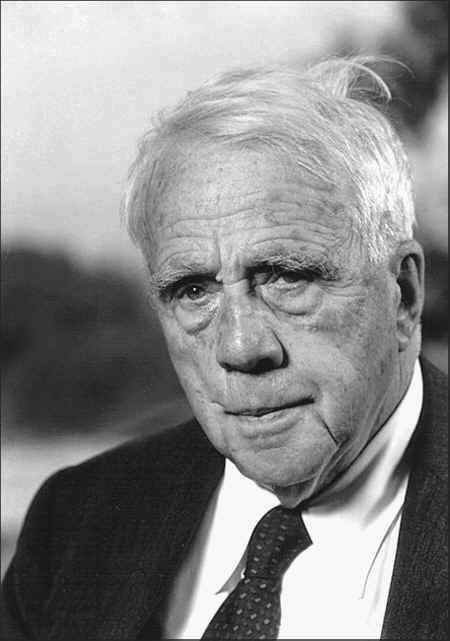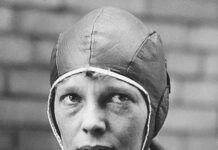
commencement at Sarah
Lawrence College in 1956.
Sarah Lawrence College is
located in the City of Yonkers
By Mary Hoar, President Emerita, Yonkers Historical Society, recipient of the 2004 Key to History, President Untermyer Performing Arts Council
Monday June 7th.
June 7, 1920: The Joseph Peene Sr., a tug that sailed the Hudson River for 28 years, sank at its moorings at Peene’s Wharf. The 11-member crew, led by veteran Captain Michael Tavaniere, was asleep on the tug, but escaped without injury.
June 7, 1936: As soon as Mayor Joseph Loehr threw the switch, the newly renovated low-service electric turbines began operating the water pumping station on Tuckahoe Road.
June 7, 1956: Two Frum Avenue residents, Seymour Schlitt and Richard DuPont, reported they had made contact with “ham” operators in countries behind the Iron Curtain! They both had reached stations in Latvia and Czechoslovakia on their radiophones; Schlitt also connected with a Russian amateur operator on International Morse Code.
Tuesday, June 8th
June 8, 1936: After having burned a twenty-foot cross in Southeast Yonkers, the Yonkers Ku Klux Klan sent a message to the Herald Statesman to publish. According to Kleagle, “We did not burn it to scare anybody,” claiming their symbol of terror really was “an emblem of faith, hope and love.” A Kleagle is a KKK officer tasked with maintaining their three guiding principles: recruitment, control and safeguard.
June 8, 1940: Councilmember Edith Welty accused the “incompetent men” in city offices of making a deliberate attempt to discredit City Manager Raymond Whitney and sabotage the Council-Manager form of government.
Wednesday, June 9th
June 9, 1945: Yonkers learned Penny, a Belgian Police dog owned by the Masko family children, was serving his country; trained for sentry duty, he was stationed at a Prisoner of War Camp in Clarindo, Iowa. According to his Nepperhan Avenue family, Penny was “performing his duty in an excellent manner.”
June 9, 1956: Speaking to a commencement audience of more than 1,000 at Sarah Lawrence College, American’s foremost poet Poet Robert Frost urged the graduates to think for themselves. “I’d rather have an idea myself, than have it given to me. I pay attention to what others say, but I find time to think over what I’ve heard to develop my own ideas.” The college graduated 75 that year, including five women from Yonkers—Christina Kwan, Ling Chang, Patricia Wagdia, Mrs. Richard Halpern and Mrs. James Klau.
hursday, June 10th
June 10, 1936: Yonkers families who loved potatoes faced a serious problem. Due to bad weather, the price of potatoes increased 250%. In 1935, five pounds of potatoes cost ten cents; now, just six months later, five pounds of potatoes were selling for a quarter!
June 10, 1956: A former Marine, Reverend Thomas Killackey of Amackassin Terrace, was ordained a Maryknoll Priest. He received the crucifix of a Maryknoll missionary from Maryknoll Vicar General Reverend Thomas Walsh since he was leaving to serve in Hawaiian missions. A few days later, his brother Edward was a ordained a priest of the Catholic Foreign Mission Society of America, and said his first mass at Sacred Heart about a week later.
Friday, June 11th
June 11, 1935: The Yonkers Common Council, by a unanimous vote, passed a resolution to create the Municipal Housing Authority.
June 11, 1947: The City of Yonkers presented an illuminated scroll expressing the gratitude all Yonkers felt to William Ewing, President of the Alexander Smith Memorial Foundation, and to all the Yonkers Home News personnel. The scroll contained the Common Council resolution thanking the Foundation for their support of the Yonkers Home News. The Yonkers Home News was a weekly newspaper sent to all Yonkers servicemen and women serving both in the US and in the overseas theaters of war. Ewing, VP of the Alexander Smith and Sons Carpet Company, said it could not have been done without the humanitarian and financial support of the company. The only such paper in the country, the Yonkers Home News published 241 editions, from June 17, 1941 to January 29, 1946, “following Yonkers men and women first to camps and then literally to every corner of the globe,” according to the scroll. It was sent weekly to 15,163 service people from Yonkers, to support morale by keeping them up to date with neighbors, friends, and events in Yonkers.
Saturday June 12th
June 12, 1955: Jan Fortuniewicz of School 25 received the one millionth container of milk served in Yonkers Public Schools during the 1954-1955 school year, the first time the schools had served that many containers of milk in a year! By coincidence, it also was Fortuniewicz’s birthday.
June 12, 1956: Superintendent of Schools Dr. Stanley Wynstra closed all Yonkers public schools early to hold a meeting, closed to the press, with the 900 Yonkers teachers. Wynstra discussed the Yonkers Teachers Association (YTA) boycott of all after-school programs. The refusal of teachers to put in the voluntary after school hours apparently had “stirred the Board of Education to indignation;” Board President Mrs. John Dill asked the YTA to call off the boycott so future salaries could be discussed without “entanglement in such an emotional issue freighted with teacher disservice.”
Sunday, June 13th
June 13, 1854: The Yonkers Savings Bank opened for business in the old Getty House; twenty-seven people deposited $265 the first day. Before this bank opened, Yonkers people traveled to New York City to do banking, either by horseback or river sloop.
June 13, 1936: Yonkers was the butt of the joke in the June 13th edition of the Saturday Evening Post. Edward Acheson’s article “Burke Tells All,” explained the need for Americans to consult the latest’ Burke’s Peerage before heading to England for vacation, if they hoped to rub elbows with royalty. Acheson ended the article with this sentence, “For the American tourist who slinks back to his own country without at least a conversational acquaintance with a brace of barons or a bevy of knights might just as will have spent the summer in Yonkers.”
Questions or comments? Email YonkersHistory1646@gmail.com.
For information on the Yonkers Historical Society, Sherwood House and upcoming events, please visit our website www.yonkershistoricalsociety.org, call 914-961-8940 or email yhsociety@aol.com.





